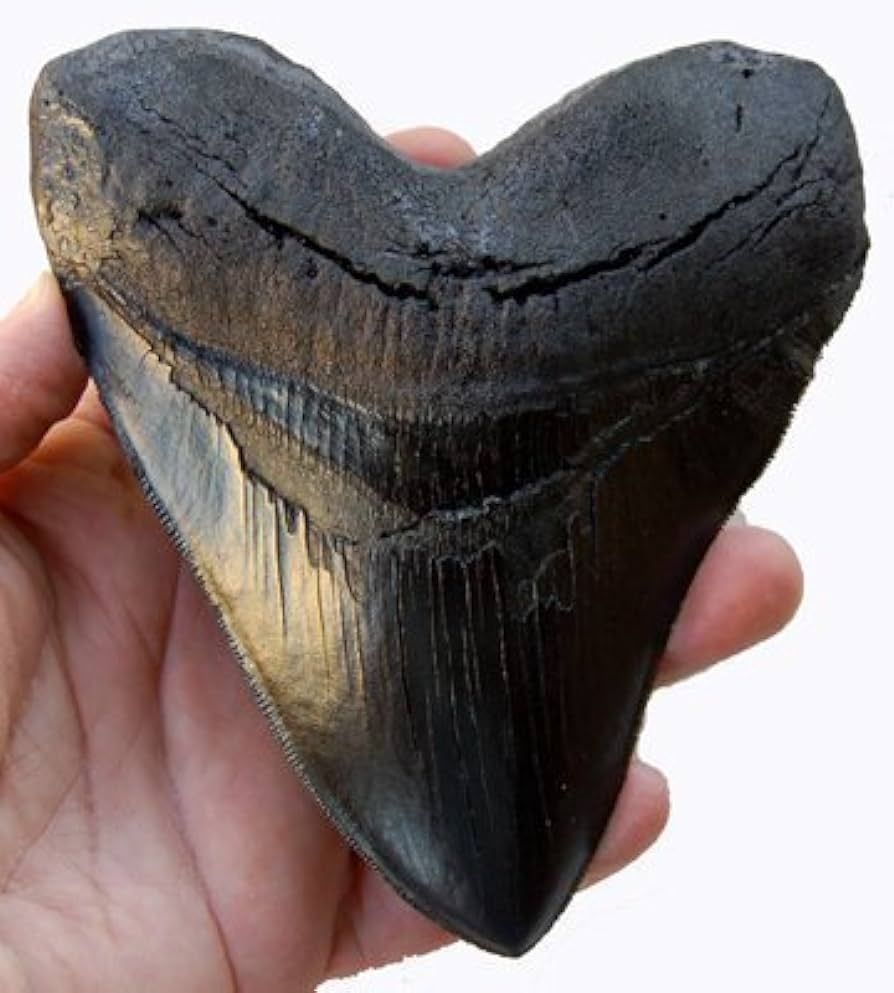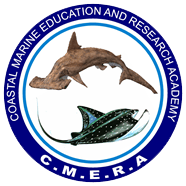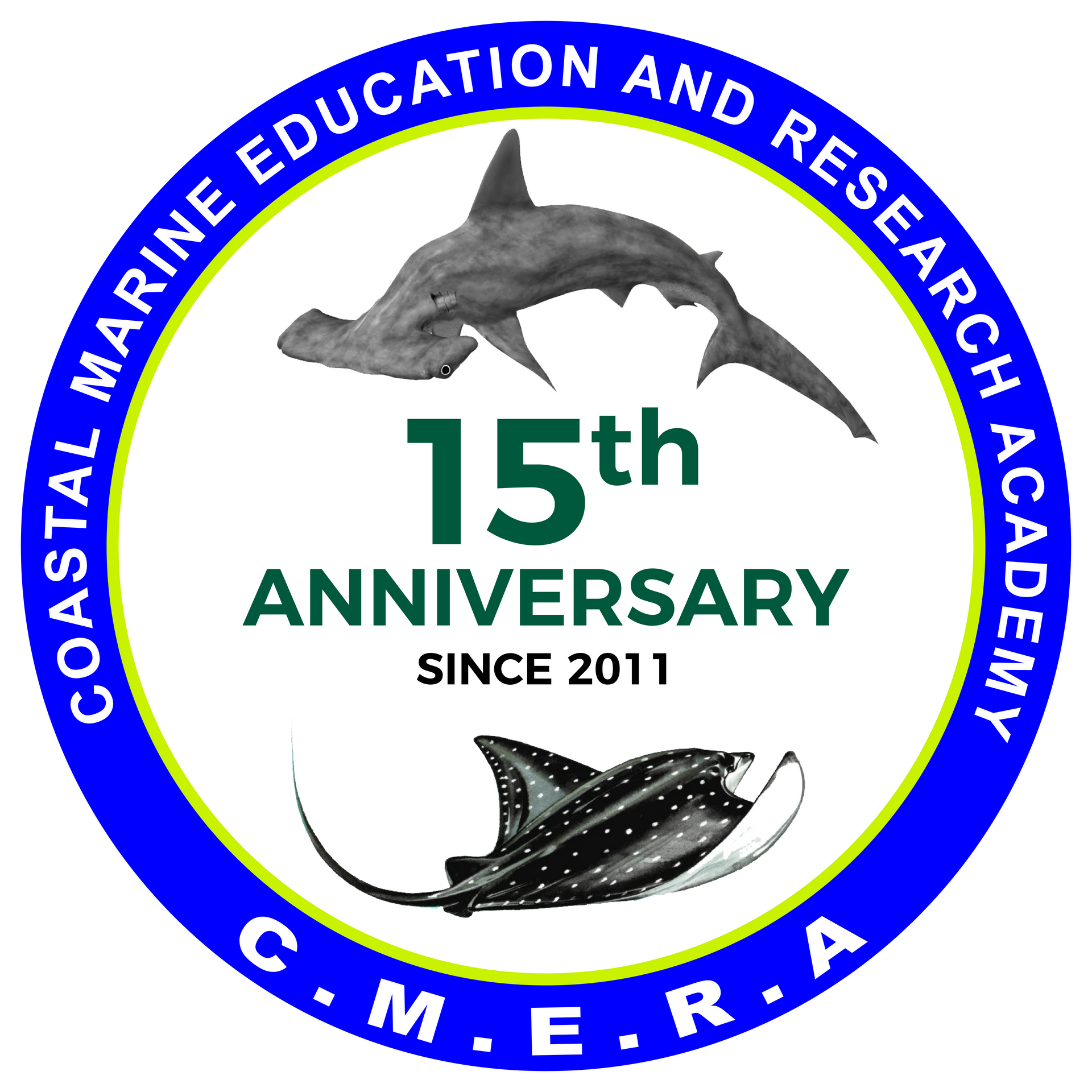JOIN REAL SHARK & RAY FIELD RESEARCH
SUMMER 2026
Trusted by Students, Professors, and Employers
- Hands-on field research experience that sets students apart in interviews and applications
- Direct experience handling sharks and rays — tagging, data collection, and field techniques
- Certificate of completion documenting real research hours and skills
- Alumni accepted into internships and graduate programs including Georgia Aquarium, NOAA, NSF REU programs, and marine biology graduate schools
- Recommended by university professors and state environmental professionals
“My students learned more during our week at CMERA than they might have from a semester in the classroom.”
— Professor Todd Wellnitz, University of Wisconsin–Eau Claire
What You’ll Do Each Week
- Work on research boats Monday–Friday
- Catch, tag, and release sharks and rays
- Collect biological and environmental data
- Learn research gear, safety protocols, and species ID
- Attend rotating lectures (6 unique weeks available)
Students participate in hands-on field research Monday through Friday, working directly on research boats to catch, tag, and release sharks and rays while collecting biological and environmental data.
Participants gain experience with a wide range of field research techniques, including:
- Gear deployment and retrieval
- Animal processing, measurement, and tagging
- Data collection and documentation using established research protocols
Who This Program Is For
Students seeking real field experience beyond the classroom
- Undergraduate students in biology, marine science, or environmental fields
- Recent graduates seeking hands-on field experience
- Career-changers and adult learners exploring marine science or conservation
- Non-students with a strong interest in sharks, rays, and field research
- Participants planning for graduate school, internships, or professional advancement
Not ready to apply yet?
Get detailed info about the CMERA Summer Program:
No obligation. We’ll email program details and answer common questions.
Research Scientist
(1–3 Weeks)
An introduction to shark and ray field research and data collection.
Students attending one through three weeks of our summer program will be considered Research Scientists on the project.
This track provides a strong introduction to shark and ray research, with daily lectures on elasmobranchs and other local marine life.
During the week, students will be on the boats Monday through Friday, learning how to set and retrieve various types of research gear, safely handle animals, and properly apply identification tags and PIT (Passive Integrated Transponder) tags. They will also collect both biological data and environmental data to contribute to our ongoing research. Instruction further includes species identification, safety protocols, and key biological facts about the animals encountered.
In addition, Research Scientists may participate in the manatee experience kayak trip, adding a unique conservation-focused adventure to their program.
Chief Scientist
Advanced Field Research Experience
(4 weeks +)
Students attending four weeks will be considered a Chief Scientist on the research project. In this advanced track, you’ll gain more time on the water, participate in deeper research, and develop advanced field skills.
As part of this experience, all Chief Scientists receive enrollment in Moore Marine College’s Shark Field Research Techniques online course, complete with a certificate of completion and digital badge to showcase your advanced training.
Chief Scientists will learn how to set and retrieve research gear, safely handle animals, and properly apply identification tags and PIT (Passive Integrated Transponder) tags. In addition, they will collect comprehensive biological and environmental data and take a more active role in field analysis.
Chief Scientists will also be acknowledged by name on any published papers resulting from this research. Because they spend more time with us, we are also able to provide stronger, more detailed recommendation letters for graduate school, internships, or career opportunities.
For students attending six weeks or more, there is also the opportunity to step into the role of Team Leader on the boats. As a Team Leader, you’ll supervise up to four students, directing them in research procedures, processes, and data collection. You’ll be responsible for assigning daily roles, rotating your team through positions, ensuring performance meets established standards, and reviewing data collection to maintain accurate research documentation.
This is
invaluable supervisory experience to strengthen your résumé and expand your professional skill set. (Note: The Team Leader role is optional and not required—offered only as an opportunity to gain supervisory skills if you choose.)
Schedule
This schedule represents a typical research week and may vary due to weather or research needs.
Monday 830am Classrooms / 10am-430pm research boats
Tuesday 3pm Classrooms / 430pm - 11pm research boats
Wednesday 9am Breakfast Social* / 1030am-5pm Manatee trip or Research boats
Thursday 830am Classrooms / 10am-430pm research boats
Friday 830 am Classrooms / 10am-430pm research boats
Weekends are free time
Our Current Research
CMERA conducts ongoing, non-lethal research focused on sharks, rays, and coastal ecosystems in the Gulf of Mexico.
Hammerhead Research
Our research will focus on understanding the increase in stress the hammerhead species exhibits while onboard. Dr. Fokidis, in the Biology Department at Rollins College, is an expert in anatomy and physiology, and will be running detailed analyses on the on board collected fin clips to test for changes in hormone levels. Moore Marine College will use this data to provide useful insight to inform our handling practices. Over our entire research time period, we’ve had less than 1.5% mortality rate using these methods with all elasmobranch species.
Ray Research
Our objective is to capture, measure, tag, and release the three main ray species in this area to gain an overview of the stingray population based on area, sizes, species interactions, and individual site fidelity. Specifically, we are gaining data on relative abundance of three major ray species (Hypanus americanus, Rhinoptera bonasus, and Hypanus say) off the coast of Tarpon Springs, FL and how it has changed over the last ten years. Where are they congregating and why?
Shark Research
Our goal is to capture, measure, tag, and release the five main shark species in this area to gain an overview of the impacts of increasing water temperature on abundance. Our guiding question is how has the relative abundance of five major shark species (Carcharhinus limbatus, Carcharhinus acronotus, Sphyrna tiburo, and Rhizoprionodon terraenovae, Ginglymostoma cirratum) off the coast of Tarpon Springs, FL changed based on temperature changes since 2014.
Manatee Clear Kayak Observation Trip
A manatee field observation trip will also be offered as an option for those participating in our summer program. The field observation trip will include transportation from our housing or the classrooms to the Weeki Wachee river. Participants will then be provided a double kayak and will be taken on a marine biologist guided tour of the river to observe manatees in their natural habitat. Participants will also be provided with a mask and snorkel to observe the manatees underwater. This optional trip will be conducted with a minimum of six participants and a maximum of twelve. Participants will be able to sign up for the trip once they arrive for their program weeks. This year there will also be a limited number of crystal kayaks available which are made of lexan and are completely see-through! This trip is INCLUDED with program fees!

Megalodon Tooth Scuba Diving Expedition
Optional Experience
Ever wondered how big a megalodon tooth was? There are many examples lying on the ocean floor waiting to be discovered! We will take you to the site near Venice, FL to scuba dive and hunt for fossils, including megalodon teeth! If you find a meg tooth it is yours to keep! Transportation and the dive boat which includes tanks and weights will be included in the fee for this adventure! Mask, fins, snorkel, b/c and regulator are not included but may be rented locally. The cost is $200 per person.
Subject to availability and you MUST be scuba certified to participate.

NOW ENROLLING FOR SUMMER 2026 !!
SUMMER 2026
Week #1 April 26-May 2, 2026
Week #2 May 3-9, 2026
Week #3 May 10-16, 2026
Week #4 May 17-23, 2026
Week #5 May 24-30, 2026
Week #6 May 31-June 6, 2026
Week #7 June 7-13, 2026
Week #8 June 14-20, 2026
Week #9 June 21-27, 2026
Week #10 June 28- July 4, 2026
Week #11 July 5-11, 2026
Week #12 July 12-18, 2026
Week #13 July 19-25, 2026
Week #14 July 26 - August 1, 2026
Week #15 August 2-8, 2026
Week #16 August 9-15, 2026
Week #17 August 16-22, 2026
Week #18 August 23-29, 2026
Not ready to apply yet?
Get detailed info about the CMERA Summer Program:
No obligation. We’ll email program details and answer common questions.

